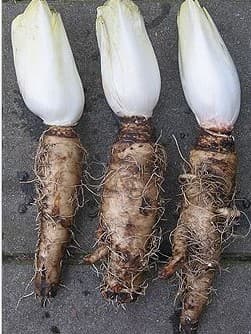The answer is no, we do not offer chicory coffee.
The reason is that chicory is an additive and one of our philosophies at Blanchard's is to do our best to honor the natural, inherent characteristics of each coffee we roast. This is why we shy away from any flavor additives in general--if you like hazelnut flavors with your coffee that is perfectly fine, just add it in your cup!
That is my personal form answer to the additive and flavor question that inevitably pops up at least once or twice a day. I've been saying it for the past ten years that I've called coffee my career so I hardly even think about it anymore. That is, until yesterday when this person followed the chicory question with another: "what, exactly, is chicory anyway?"
I noted again that it was an additive, blah blah blah, but this obviously didn't answer the question with any substance so I admitted I had no earthly clue what chicory really was and I promised I would do some research and find out.
I was surprised by what my research turned up and I think many of you will be too.
Chicory is a root--I knew this much--and that root is baked slowly until it is completely dry, then it is ground and added to coffee. Originally this practice was to basically dilute the amount of coffee used because chicory root was cheaper than coffee at the time so, without drastically altering the flavor of the coffee, a good deal of money was saved. Over time, as with chicken feet and chitterlings, the folks brewing chicory coffee became attached to the flavor and thus a tradition is born.
So if chicory is a root, what is the plant that grows from it? I was pleasantly surprised to learn that two of my favorite vegetables are actually products of the chicory root: Radicchio and Endive, as well as another leafy plant called Sugarloaf are all sprouts of the chicory root. Admittedly, I don't particularly care for chicory coffee but I now have a much greater appreciation for it just knowing the plant's whole story.

Sawasdee ka *-*
ReplyDeleteI come to visit you blog naka
lily